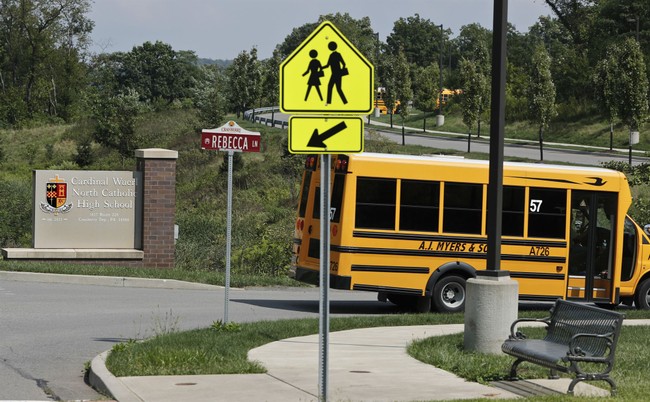Education
Debate Intensifies Over Gifted Programs in Schools

Controversy surrounding the future of Gifted and Talented (G&T) programs in public schools has escalated following recent remarks by New York State Assemblymember Zohran Mamdani. Mamdani has proposed the abolition of these programs, sparking a fierce debate about educational equity and the needs of advanced learners. Critics argue that eliminating G&T programs would undermine opportunities for students with exceptional abilities, potentially stifling their passion for learning.
Advocates for G&T programs highlight their role in identifying students with unique talents through comprehensive assessments. These programs serve students who excel not only in academics but also demonstrate a range of skills. For example, G&T assessments often include evaluations of verbal, reading, and problem-solving abilities. Participants engage in challenging, open-ended projects and complex problem-solving tasks designed to keep them intellectually stimulated.
The impact of G&T programs extends beyond academic enrichment. Research indicates that students who are not adequately challenged may experience boredom and disengagement, leading to behavioral issues. As one former student recounted, being placed in group settings with peers who lag significantly behind can diminish the joy of learning.
Many believe that rather than eliminating G&T programs, schools should enhance their offerings to accommodate gifted students. A significant concern among parents and educators is that removing these programs will not solve the underlying issues of educational inequality but may exacerbate them. Critics argue that such moves reflect a broader trend towards mediocrity in education.
Statistics support the argument for maintaining G&T programs. According to a report from the National Association for Gifted Children, approximately 6% of students in the United States are identified as gifted. These students thrive in environments where their unique abilities are recognized and nurtured.
The debate also touches on broader themes of educational choice. Proponents of school choice argue that parents should have the right to seek out educational settings that align with their children’s needs, including options that cater to gifted learners. This perspective emphasizes the importance of flexibility in education, allowing families to choose the best paths for their children’s development.
In light of these discussions, it remains to be seen how educational policies may evolve. The outcome of this debate will significantly impact the future of gifted education and the opportunities available for students who excel academically. With voices on both sides making compelling arguments, the conversation regarding the fate of G&T programs is likely to continue.
As schools worldwide navigate the complexities of education reform, the voices of parents, educators, and policymakers will play a crucial role in shaping the educational landscape for future generations. The challenge lies in finding a balance that supports all students, recognizing their diverse abilities while promoting a love of learning.
-

 Science1 month ago
Science1 month agoNostradamus’ 2026 Predictions: Star Death and Dark Events Loom
-

 Technology2 months ago
Technology2 months agoOpenAI to Implement Age Verification for ChatGPT by December 2025
-

 Technology7 months ago
Technology7 months agoDiscover the Top 10 Calorie Counting Apps of 2025
-

 Health5 months ago
Health5 months agoBella Hadid Shares Health Update After Treatment for Lyme Disease
-

 Health5 months ago
Health5 months agoAnalysts Project Stronger Growth for Apple’s iPhone 17 Lineup
-

 Technology5 months ago
Technology5 months agoElectric Moto Influencer Surronster Arrested in Tijuana
-

 Education5 months ago
Education5 months agoHarvard Secures Court Victory Over Federal Funding Cuts
-

 Health5 months ago
Health5 months agoErin Bates Shares Recovery Update Following Sepsis Complications
-

 Technology6 months ago
Technology6 months agoDiscover How to Reverse Image Search Using ChatGPT Effortlessly
-

 Technology7 months ago
Technology7 months agoMeta Initiates $60B AI Data Center Expansion, Starting in Ohio
-

 Science4 months ago
Science4 months agoStarship V3 Set for 2026 Launch After Successful Final Test of Version 2
-

 Technology7 months ago
Technology7 months agoRecovering a Suspended TikTok Account: A Step-by-Step Guide





















